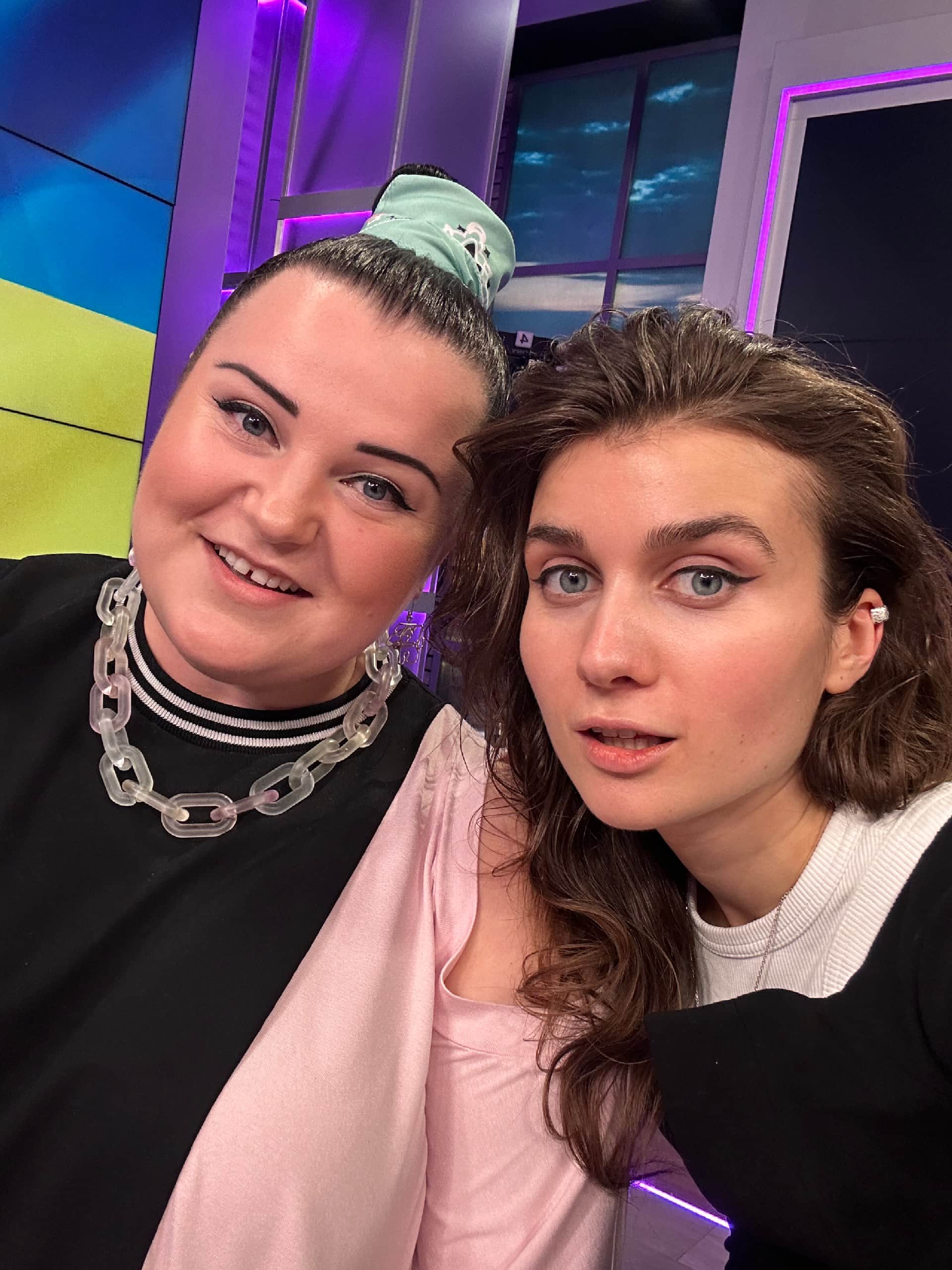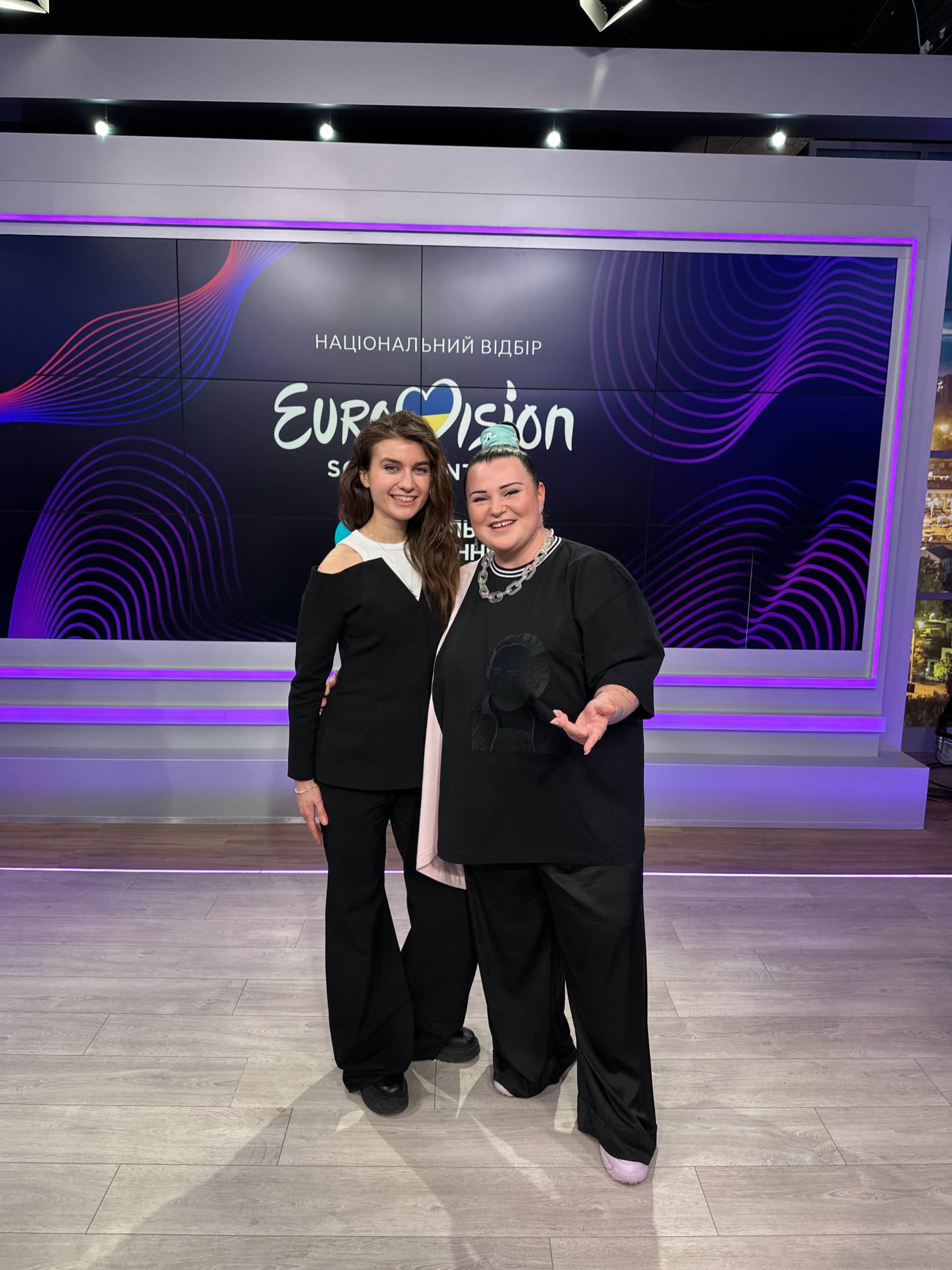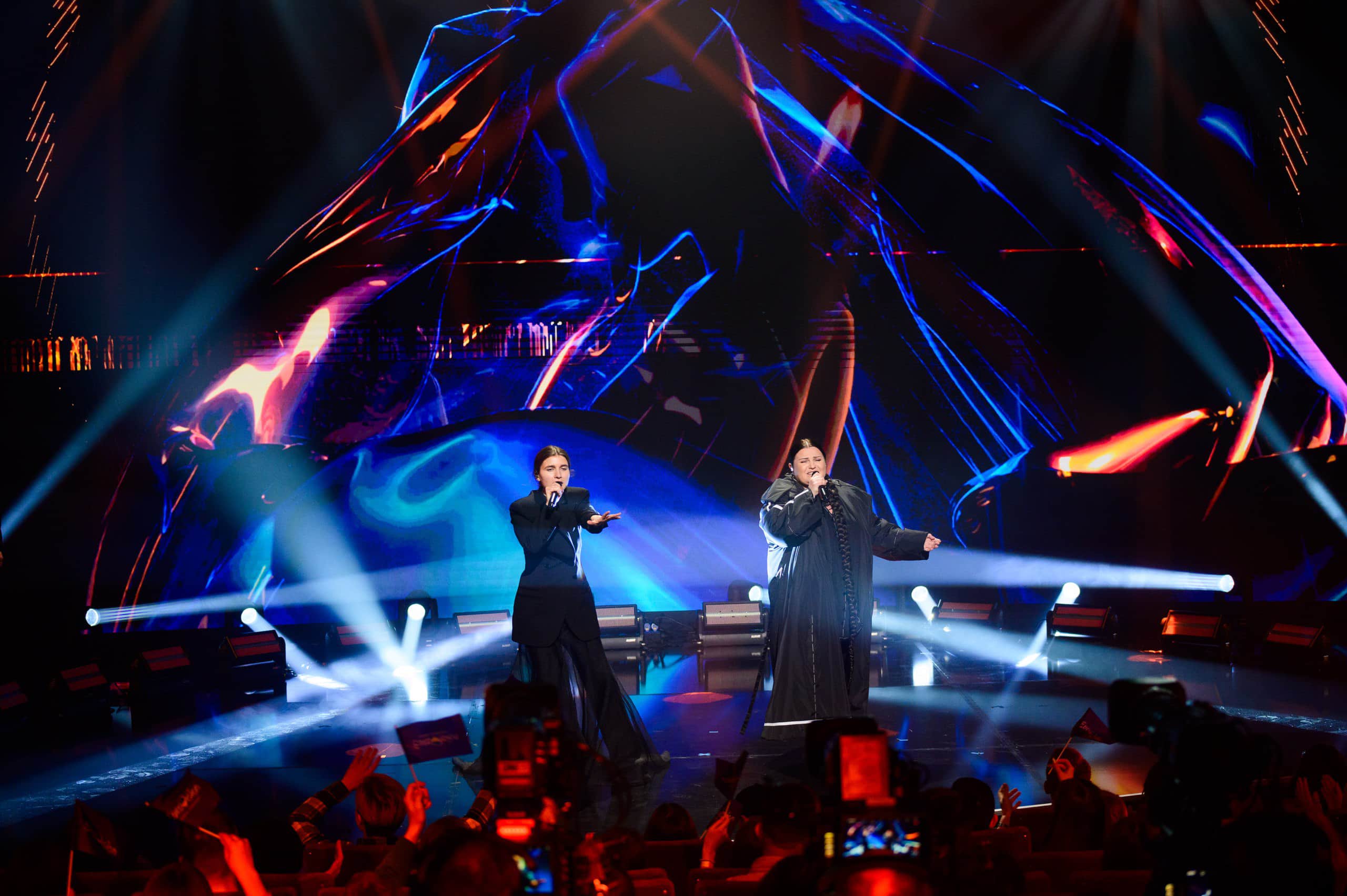Ukraine Eurovision 2024: Alyona Alyona and Jerry Heil explain the story behind “Teresa and Maria”
It's long been true that Ukrainian artists stepping onto the Eurovision stage carry a weight far beyond performance anxiety; their presence inherently becomes a political statement. As has been the case for past performers from nations under attack, their acts can bring comfort and solidarity to compatriots at home and abroad, while also asserting their cultural identity in front of a global audience, at a time when that very identity is under threat. Recent Ukrainian contestants have skillfully navigated this terrain.
Jamala's "1944" discusses the Soviet ethnic cleansing of Crimea, featuring a chorus in the Crimean Tatar language, and won in 2016, after Russia's annexation of Crimea. Kalush Orchestra, on their way to victory in 2022, used a performance to call for aid for Mariupol and the defenders of Azovstal. Similarly, last year, Tvorchi displayed a sign with the name of their hometown, Ternopil, following a missile attack by Russia just hours before.
Rapper Alyona Alyona, collaborating again with pop-folk singer Jerry Heil on the track "Teresa and Maria," acknowledges the responsibility awaiting them in Malmo this May, following their recent victory in Vidbir. For her, fighting Russian genocidal narratives has always just been part-and-parcel of being a musician in Ukraine.
Advertisement:"If you talk about Ukrainian culture not only 50 years ago, but 100 and 200 hundred years ago. It was always pushing back, resisting," she said in a recent interview in English with Ukrainska Pravda. "We have to spread this culture."
Girl talks
Heil (Yana Shemaieva) and Alyona (Aliona Savranenko) have forged a strong partnership after collaborating more than half a dozen tracks in the last two years.
They wrote "Teresa and Maria" during sessions with their shared producer, the influential Vanya Klymenko, who notably contributed to Kalush Orchestra's "Stefania," the 2022 Eurovision winner. The duo typically begin their songwriting process by talking, often for hours, about whatever comes to mind. In the course of one of those conversations, Heil mentioned how people now thought of as "saints" were at one time just ordinary people. "So all the saints, all the holy like people, they were just people just like us, just human beings.
And we started with that idea, and then we just went to other rooms and created something that was somehow connected, because we talked a lot before it."
 all photos provided by the heroes
all photos provided by the heroes
Saints walk among us
As they talked, another layer came: the idea that our ancestors, including those considered "saints," though once flawed humans, continue to offer strength, inspiration, and guidance. The choice of the names Teresa and Maria, representing Mother Teresa and the Virgin Mary, serves more of a symbolic than a literal purpose. Within the song, these names are designed to evoke the essence of strong women, embodying feminine traits of love, kindness, and wisdom.
"It's your family, your granny's and the holy woman who were born as human beings. But now they are in heaven. And they help you.
They are watching you, and they are always with you," Alyona said. Alyona, a former kindergarten teacher who grew up inspired by Eminem, takes the song in a more contemporary feminist direction with her rap verse, particular with the line "?? ???? ????? ?? ???? ?????? ?? ???? ? ??????; ? ?????: ????? ??? ?????? / Where is your child? What is your life?
But the years are flying by, and remember: the end is not far away."
Advertisement:It addresses societal expectations placed on women: "All of a woman's life, we have this expectation from people like, 'Oh, you're 30 years old, why don't you have children? Why are you not married?' All your life you hear these words. And, it's a bit hard because we are independent persons.
And maybe you want to be child-free. Maybe you love your relationship without marriage, without rings," she says. From her perspective, the full-scale invasion has intensified the demands on Ukrainian women, many of whom have become refugees or displaced, often taking on the sole responsibility of caring for their families as many men serve as defenders in the armed forces. "It's really hard to be a woman and man at once," Alyona reflects, noting the additional roles women have needed to assume.
Alyona emphasized the song's universal message, intended for individuals across all spectrums of race, religious belief and sexual orientation. "So, no matter what your skin color is, who your partner is, or even if you have one. Regardless of the religion you follow, you all are our audience. We aim to spread kindness and love, and that's the core message of our song.
We must unite during these challenging times."

"We even highlight it in our lyrics. We assert that we were all born human, equal," Heil adds. The theme of everyday women aligns with Alyona's musical ethos and her advocacy for body positivity. "It's my body, my opinions, my rules, and my self-love.
Loving myself allows me to extend that love to others. Whether I choose to be fat today or decide to get skinny tomorrow, it's my choice. My hair color, my nose, my lips - all my choices.
And 'body positive' is about respecting everyone's choices."
That Ukrainian sound
While Alyona provided the verse, Heil infused the song with its distinct Ukrainian melodic and harmony. The song begins with a reflective, mournful intro and transitions into a pulsating chorus, characterized by its distinctly Ukrainian vocal style. "The thing that adds to the folk spirit is the vocal technique I use there.
It is called 'white sound'/ 'white voice'/'white singing'. How you do it: wide open throat and your vocal cords closed very tight, so there's minimum air coming through. For me, this is the sound that comes straight from the heart," she said.
Advertisement:This pop-folk approach is deeply connected to her early life and the moments shared with her mother, who is from a small village in central Ukraine, and the songs they sang together during family gatherings.
Heil shares, "I was raised on Ukrainian folk songs because my mother, she's from a village. And when she was walking me to music school, we used to sing, in two voices, folk songs. And that became a part of me."
Cultural diplomacy
Some have questioned the allocation of state public broadcaster funds for Eurovision during a period when the military reports shortages in drones and ammunition, but it's important to recognize that the artists themselves are not involved in these budgetary decisions.
However, they view cultural diplomacy as a crucial aspect of their role. Heil draws a parallel to South African musician Miriam Makeba's influence in mobilizing international sentiment against Apartheid through her music. In a similar vein, she hopes their Eurovision performances attract global listeners to Ukrainian music and helps sustain international support for Ukraine.

"If you don't know Ukrainian culture, if you don't listen to Ukrainian music, you, you just don't feel related.
And I want people to feel related. I want people to listen to Ukrainian music, like, nonstop. And this is my goal.
This is Alyona's goal. We want Ukrainian music to be in the world's charts. We want it to be in your playlists.
And we will make everything that is needed for it to happen."
Author Jared Goyette